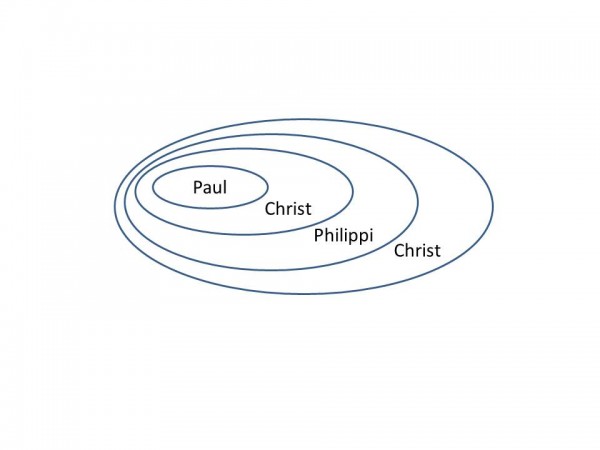Let’s focus on two instances in the Bible where God speaks to us about a “fiery furnace.” Though both situations are ominous, they are infinitely different. One leads to a closer relationship with Jesus, and one leads to eternal damnation. A night and day difference is clear. The question is: of which fire will you be a part?
At one point in his book, Erasing Hell, Francis Chan contemplates the day-to-day implications of the reality of Hell. After discussing the conflict he undergoes while considering the destinies of passers-by, Mr. Chan explains about Hell,
-
This is not just about doctrine; it’s about destinies. And if you’re reading this book and wrestling with what the Bible says about hell, you cannot let this be a mere academic exercise. You must let Jesus’ very real teaching on hell sober you up. You must let Jesus’ words reconfigure the way you live, the way you talk, and the way you see the world and the people around you. (p. 72)
Obviously, Francis Chan believes (as I do) that our Bible teaches a non-negotiable reality of a just God – Hell. Jesus once told the “Parable of the Weeds” to crowds of listeners. Later, the Lord took his disciples aside and explained the parable. Jesus made clear that the sower of the good seed is the Son of Man, the field is the world, and the good seed represents true Christians. The weeds, however, are the sons of the devil. When the close of this world occurs, angels will gather in the “harvest.” Jesus soberly proclaimed in Matthew 13:40-42 (ESV), “Just as the weeds are gathered and burned with fire, so will it be at the close of the age. The Son of Man will send His angels, and they will gather out of His kingdom all causes of sin and all law-breakers, and throw them into the fiery furnace. In that place there will be weeping and gnashing of teeth.”
Certainly, God is communicating through His Word a truth many would rather ignore. Nonetheless, it is apparent throughout Scripture that evildoers (without the redemption that comes through Jesus Christ) will be going to a place of misery. In the New Testament, we find Hell described as a place of fire, darkness, weeping, and unimaginable regret. In Matthew 25:41 (ESV), Jesus describes hell as a place of “eternal fire prepared for the devil and his angels.” In this context, Jesus explains that unrighteous people will go to this place of punishment; though it was originally designed as the final abode of the most wicked one.
Okay, so very sadly we discover that there is a fiery furnace to be endured by those who reject God’s salvation through Jesus and continue on in their sinfulness. This fiery furnace is one where pain is felt to a degree currently unknown to us. Crystal clear is the fact that this fire is one of which we do not want to be a part. We are given no hope in Scripture of assistance or comfort there.
Travel back to the Old Testament book of Daniel. Three young men – Shadrach, Meshach, and Abednego – refuse to give in to the wicked decree of King Nebuchadnezzar, demanding that all people bow down to a golden idol he had built. These men decided to remain faithful to the one, true God. Knowing the punishment for disobedience was to be thrown into a fiery furnace; Shadrach, Meshach, and Abednego obeyed God still. Furious at their refusal to do his bidding, Nebuchadnezzar had the furnace overheated so that the flame of the fire killed even the men who took Shadrach, Meshach, and Abednego to the furnace! Even so, the righteous young men were bound and thrown in.
Contrast what happens next to the description of Hell we have discussed already. In astonishment, King Nebuchadnezzar quickly rose and observed what was happening in the fire. In Daniel 3:24-25 (ESV) we read, “[King Nebuchadnezzar] declared to his counselors, ‘Did we not cast three men bound into the fire?’ They answered and said to the king, ‘True, O king.’ He answered and said, ‘But I see four men unbound, walking in the midst of the fire, and they are not hurt; and the appearance of the fourth is like a son of the gods.'” Later, in verse 27 we discover, “The fire had not had any power over the bodies of those men. The hair of their heads was not singed, their cloaks were not harmed, and no smell of fire had come upon them.”
Unbelievable! THIS fire did no harm to the lovers of the true God. In fact, Jesus Himself appeared in the fire with them! This was a furnace of testing – meant to refine and draw men closer to God – not to destroy them. We note particularly that the fire had no effect on their physical bodies, so that not a hair was singed, nor did even a faint smell of smoke arise. In this furnace, God is with us. This fire is not OUR end or THE end; it is part of the process of learning to trust Him. We come out of this one unharmed . . . and more confident in our God!
Of which fire do you want to be a part? The one of punishment and separation from God? Or the one of testing and drawing nearer to God? One continues on in hopelessness and suffering untold. The other is one in which Jesus walks with us and protects us. We come out to a glorious end! I think this fire is the one of which the prophet Isaiah spoke in 43:2-3 (NIV), “When you walk through the fire, you will not be burned; the flames will not set you ablaze. For I am the LORD, your God, the Holy One of Israel, your Savior.”
If you choose the fire of testing and drawing nearer to God, you must choose Jesus. He is the only one who can cover your sin, because He took the payment for your wickedness at Calvary. Call on Him, and He will surely deliver you from Hell, and walk with you through the temporary, testing fires of this life.
Reference: Francis Chan, Erasing Hell (Colorado Springs, CO: David C Cook, 2011)



